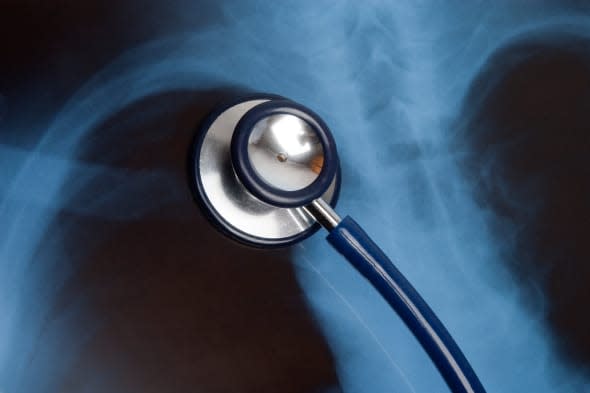Lung cancer - what you need to know

According to the NHS, over 41,000 people in the UK are diagnosed with lung cancer each year, making it one of the most common types of the disease - unfortunately it is also one of the most serious.
If you are worried about your own health, or that of a friend or relative, here is what you need to know about the condition, and what you can do to prevent it.
Related Searches
Types of lung cancer
There are two types of primary lung cancer - where the cancer begins in the lungs rather than spreads as a secondary cancer - non-small-cell lung cancer, and small-cell lung cancer.
The former is the most common type, and accounts for more than 80 per cent of cases. The latter, though less common, usually spreads much more quickly.
Symptoms
One of the major problems with lung cancer is that there are typically no signs or symptoms during the early stages. However, as the disease progresses, sufferers may experience a persistent cough and/or breathlessness, unexplained fatigue and weight loss, pain when breathing or coughing, or they may cough up blood.
It rarely occurs in people under the age of 40, with rates increasing with age. It commonly affects people aged 70 to 74.
Treatment
If you are diagnosed with lung cancer, your course of treatment will depend on a number of factors, including how far the disease has progressed, whether it has spread, and the condition of your general health.
Where the disease is diagnosed early, it may be possible to remove the affected area of the lung. If surgery is unsuitable or the cancer has spread to a wider area, either radiotherapy or chemotherapy will be prescribed.
Because the symptoms do not generally appear until the disease has spread, often to other parts of the body, lung cancer can be difficult to treat successfully, and sadly the prognosis is often not good. The NHS reports that one in three people live for at least a year after diagnosis, and fewer than one in ten make it to five years. As with all cancers, early diagnosis can make all the difference when it comes to treatment.
Coping with the disease
People who are diagnosed with lung cancer will be assigned a specialist team, including one nurse specialist, who can offer advice on how to cope with day-to-day life, answer questions about treatment, and help with the condition.
But there is also support available from the likes of Cancer Research UK, Macmillan, and the Roy Castle Lung Cancer Foundation. These include information on controlling the symptoms, practical living advice, and forums where you can talk to others in the same situation.
Prevention
A healthy diet will help to protect against a range of cancers, as well as heart disease, so try to stick to a low-fat, high-fibre diet, getting plenty of fresh fruit and vegetables and whole grains.
Evidence also suggests that regular exercise could be key to reducing your risk of the disease, with two-and-a-half hours of moderate aerobic activity recommended each week - that's just half an hour each weekday.
%VIRTUAL-AFCSponserAds%
Smoking is at the root of 90 per cent of lung cancer diagnoses, and giving up cigarettes is a must if you want to significantly reduce your chances of developing the disease. If you have tried and failed before, don't give up giving up - speak to your GP or call the NHS Smokefree helpline on 0300 123 1044 for advice on therapies, support groups or simple tips might be able to keep you on the straight and narrow. Quit now and give your body the best chance of staying healthy.
Have you or someone you know been diagnosed with lung cancer? What advice would you give to others who may be affected? Leave your comments below...




